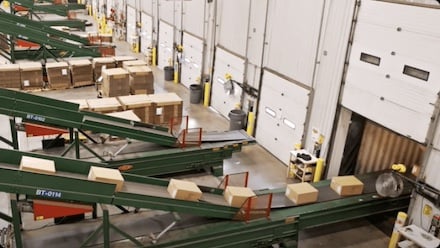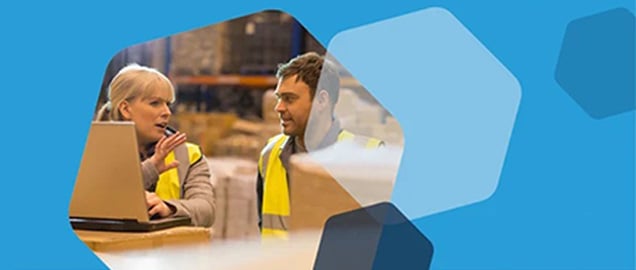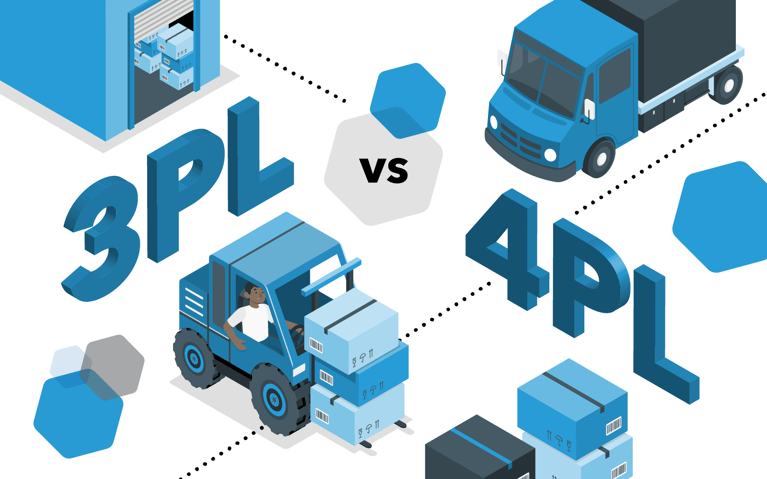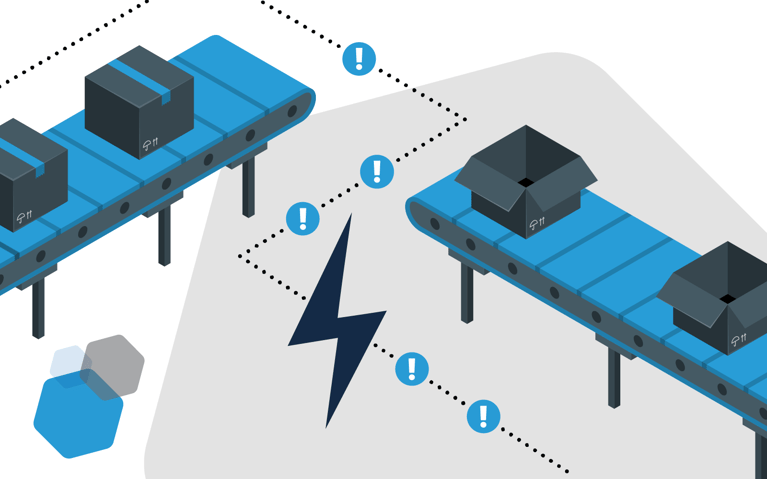Ecommerce comes with its own set of issues for growing and scaling businesses. As digital retailers experience increased traffic and customers and handle more inventory, they must adapt to meet demand and maintain performance. Successfully scaling means the ability to grow without barriers. To do that, you need the support, staff and tools to help you scale up unhindered.
What is scaling?
The basic definition of scale is to adjust. For ecommerce retailers, scaling a business is planning and enabling growth. It’s ensuring you can adapt to increased workloads and market demands. Economically, it means to increase revenue at a faster rate than costs.
Scaling a business addresses many areas, from labor and production to operations and technology. Ecommerce brands should plan to evolve marketing strategies, streamline fulfillment, expand into new channels and markets and upgrade technology. Before scaling, you should make sure you have everything in place to grow: In other words, the people, partners, tools and technology to grow effectively and efficiently. You’ll want systems in place that let you focus on customer acquisition, building your brand and product growth.
What are the signs it’s time to scale?
Growth is the ultimate goal for most businesses – but expansion can feel daunting. However, there are often sure signs that it’s time to scale up to support future success better and ensure you continue to meet your customers' needs. This includes:
- You’re exceeding monthly goals: Are you consistently boosting conversion rates, increasing website traffic or seeing higher average order values (AOV)?
- Your sales are strong: Are you surpassing past sales numbers or your sales projections? Is your sales team motivated and dedicated?
- Your operations and infrastructure are solid: Are your systems and operations reliable, efficient and keeping up with your current pace?
- Your business is peaking: Have you plateaued? Do you need a new product line or market expansion?
- Your demand exceeds supply: Is your customer base growing? Are you having challenges keeping items in stock?
- There is minimal risk: Do the benefits of scaling outweigh any risks? Do you have strategies in place to minimize risk?
- There are new marketplace trends: Are there trends that could benefit your business? Do your products fall in line with any new market demands?
If the signs say it’s time to scale, plan before acting. Businesses that move forward without preparation can find themselves in a challenging situation.
Why do businesses fail when scaling?
Scaling is beneficial and creates new opportunities when done right – but there are common pitfalls that can lead to failure. Ecommerce brands should watch out for:
Scaling too early
Timing is often everything in business. When you bring on new people, spend money or try to make big business moves without assessing things first, it can end badly. Before scaling, have solid data and know your customers, product and processes well. Develop a roadmap and get creative during the scaling process. For example, use tech and partners to scale before adding roles to maximize cost savings.
Unclear or misaligned visions
If founders, investors and employees aren’t aligned, it can create major problems. Before scaling, ensure everyone is on the same page and has a united vision for the future.
Misinterpreting customer or audience
Do you know your audience and customers? Do you understand their pain points and work to meet their needs? It’s impossible to scale without a demand, meaning you must be customer-centric before moving forward. Even if you have a fantastic product, you can’t sell it without a buyer.
Poor planning or lack of expertise
Your plan to scale should be rational and include the appropriate expertise. Effective growth takes the right strategies and a team that can execute them.
Competition
Ecommerce can be a competitive space. Competitors may offer a better price or variety. By providing an exceptional customer experience and superior product, you will have more success when it’s time to scale.
Scaling and fulfillment
Scaling an ecommerce business requires having the right amount of space, inventory, real-time visibility and fulfillment and logistics capabilities. Without it, you face the potential for miscommunication, order issues and insufficient staff – leading to unhappy customers.
For many ecommerce businesses, a 3PL service supports scaling fulfillment, logistics and shipping effectively and efficiently. They can offer benefits like:
- Increased flexibility: The retail industry can change on a dime. There are times when you must pivot quickly based on varying needs or new trends. Working with a 3PL can offer you the flexibility to handle multiple situations, from dealing with peak season to a major shift in customer demand. You can get labor, space and services according to your needs.
- Industry expertise: Ecommerce brands need to be able to focus on marketing, sales, innovations and growth. You can free up more resources by outsourcing your fulfillment to the experts.
- Easier expansion: When your customer base expands, having product near your customer hubs is often beneficial. That way you can offer the same level of service while meeting customer demand – for example, two- or three-day shipping, low or free shipping costs or better product availability.
Which 3PL services help ecommerce businesses scale?
Robust 3PL solutions give ecommerce retailers the tools and services they need to optimize their fulfillment.
Warehousing and fulfillment network
Keeping product near your customer base is critical, especially with today’s consumer demands. Fulfillment requires picking, packing and shipping along with returns management, storage and freight. A scaling ecommerce business may need more product locations or more affordable shipping. The right 3PL will help you manage your fulfillment needs as you grow and offer expertise about distribution strategies. They’ll also provide flexibility, especially when handling peak seasons or growing demands, or when you need to implement a multi-node fulfillment strategy.
Transportation
Efficient distribution relies on established supply chains. A successful 3PL has existing relationships and operations that let you scale quickly when needed. This includes carriers, transport companies and strong logistics management.
Modern technology
Technology plays a huge role in fulfillment as well as growth. Today’s ecommerce retailers need real-time visibility, strong inventory management and data reporting that helps drive decisions. A 3PL that offers exceptional technology is highly beneficial. That technology can help you automate, track, establish KPIs, offer superior customer service and streamline operations. The OMS (order management system) and WMS (warehouse management system) should help you do things like:
- Meet tighter delivery windows
- Operate with shorter lead times
- Reduce customer response times
- Enhance visibility
- Manage stock better
- Streamline returns management
Partner with Cart.com to scale your growing business
If all signs point to growth, make sure you have the right 3PL service. Your ability to enhance the customer journey and offer a great fulfillment and shipping experience depends on an expert 3PL partner.
Contact our team today if you’re ready to grow.
Subscribe to our emails for the latest industry insights!
By entering your email, you agree to receive marketing emails from Cart.com






